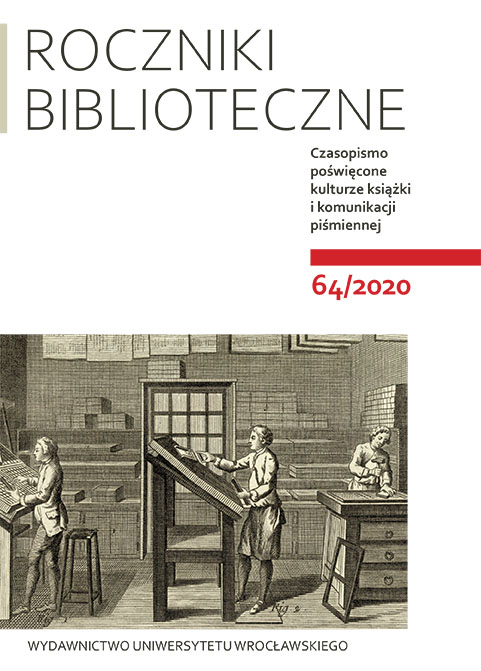

Articles and materials

The aim of this article is to present the little recognized, but meritorious person figure of J. Potocki and his family in historical context, as well as to characterize the gift given to the Warsaw Public Library. The biographical findings presented below, critical references to some information contained in modest studies, as well as the indication of certain facts related to the condition of the collection of books and its transfer to the Public Library, were based on reviewed archival materials, partially preserved old catalogues, 19th and 20th century press releases, literature on history and library science. The method used was mainly a comparative analysis of materials encountered in the course of queries, with a preference for sources.
Jakub Count Potocki (1863–1934) came from a well-known aristocratic family. He contributed to the Republic of Poland mainly through philanthropic activities. Shortly before his death, he was awarded the Great Ribbon of the Order of Polonia Restituta. Undoubtedly, his most important work was the bequest of almost all assets worth over 37 million PLN for the Jakub Count Potocki Foundation (September 1934), which was to finance research on cancer and tuberculosis by statute. In the same document, he donated paintings, tapestries, sculptures and furniture to the National Museum in Warsaw, and the book collection of about 11,900 volumes gathered in Helenów near Pruszków, to the Warsaw Public Library. As a whole, this collection, through provenance records and established information about its gradual accumulation by Stanisław and Jakub Potocki, as well as by the earlier owners of the book collections that joined it, proves the involvement of some representatives of the Polish intellectual elite of the 19th century in maintaining the memory of the former Polish Republic and thus maintaining the national spirit. The deliberate thematic selection is indicated by the nature of the literature collected by Sapieha, Potocki, Ignacy Count Łoś, Bentkowski, Jerzy Samuel Bandtkie or Jan Wincenty Stężyński Bandtkie, Kazimierz Stronczyński, Pruszyński. The analysis of the contents of this book collection leads to a closer acquaintance with the history of these figures, sometimes forgotten and meritorious for the Polish culture of the partition period.